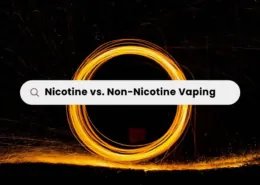Study Reveals E-Cigarettes as Effective as Chantix in Smoking Cessation
A landmark clinical trial published in JAMA Internal Medicine has found that e-cigarettes are just as effective as varenicline, the gold-standard pharmaceutical drug, in helping people quit smoking. The study, conducted by researchers at Lapland Central Hospital in Finland, has the potential to reshape the debate surrounding the use of e-cigarettes as a smoking cessation tool.
The Study Design
The randomized controlled trial involved 458 daily smokers who expressed a desire to quit. Participants were divided into three groups:
- Those who received a nicotine-containing e-cigarette and placebo tablets
- Those who received varenicline and an e-cigarette without nicotine
- Those who received a placebo tablet and a nicotine-free e-cigarette
All three groups also received intensive tobacco cessation counseling throughout the 12-week study period.
Promising Results
At the 26-week mark, the study found that 40.4% of participants using e-cigarettes and 43.8% of those using varenicline had successfully quit smoking. The difference in quit rates between the two groups was not statistically significant, suggesting that e-cigarettes are as effective as varenicline in helping smokers kick the habit.
This study marks the first published randomized controlled trial to directly compare varenicline, also known as Chantix, to e-cigarettes. While previous studies have shown that e-cigarettes can aid in smoking cessation, most have compared them to placebo or nicotine replacement therapy, such as patches and lozenges.
Implications for the Tobacco-Control Community
The findings of this study are likely to spark a heated debate within the tobacco-control community, which has been deeply divided over the role of e-cigarettes in smoking cessation. While countries like the United Kingdom actively encourage smokers to use e-cigarettes to quit, others, such as the United States and Japan, have taken a more conservative approach.
Supporters of e-cigarettes argue that this study provides evidence that the UK’s approach is the right one. “In this country and elsewhere … public health groups are working hard to limit access to [e-cigarettes], which is counterproductive to a goal of making more … stop smoking treatment options available to people who smoke,” said Kenneth Michael Cummings, a professor at the Medical University of South Carolina and a vocal advocate for e-cigarettes as a cessation tool.

Ecigator Sticky Open Pod Kit
The Sticky Open Pod Kit is a contemporary vaping device that combines functionality with fashion. This kit is designed with a box-style form factor, offering a compact and stylish appearance that’s ideal for vaping enthusiasts on the move.
At the heart of this kit is a Refillable Open Pod System, with a capacity of 2ml, perfect for accommodating a variety of e-liquids. The pod is equipped with a high-quality Mesh Coil that not only ensures a rich and flavorful vaping experience but also boasts durability for up to 8 Refills.
Varenicline Remains the First-Line Treatment
Despite the promising results, independent researchers who reviewed the study cautioned that e-cigarettes should not replace varenicline as the first-line treatment for smoking cessation. Nancy Rigotti, director of the Tobacco Research and Treatment Center at Massachusetts General Hospital, noted that “Varenicline’s long track record of efficacy and safety and its approval from FDA as a smoking cessation aid favors it as the first-line choice, but this study indicates that [e-cigarettes] are certainly an option for people who are unsuccessful with or cannot tolerate varenicline.”
Limitations and Future Research
The study does have some limitations, including the assumption that e-cigarettes are significantly safer than traditional cigarettes, without considering the potential long-term health effects of continued e-cigarette use. Additionally, the results may have been influenced by the specific type of e-cigarette used in the study, which had a relatively low nicotine concentration compared to many products currently available on the U.S. market.
Further research is needed to assess the long-term efficacy of e-cigarettes in maintaining smoking abstinence and to determine the optimal type of e-cigarette for smoking cessation. Nevertheless, this study represents a significant step forward in understanding the potential role of e-cigarettes in helping smokers quit and is likely to shape future discussions on tobacco control policies.
- Australia to Limit Vape Sales to Pharmacies from Next Week - June 25, 2024
- North Handshake 15000 Puffs Disposable Vape Review - June 25, 2024
- UAE Vaping Regulations: Is Vaping Legal in the UAE? - June 25, 2024









